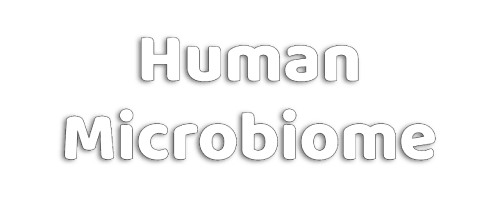Serendipity
New member
- Joined
- Apr 7, 2024
- Messages
- 2
I have several questions and I believe the accumulated scientific evidence does not yet have the answer. Michael, I have read quite a bit of your wiki but I have not found answers to these questions, and I would like to know the perspective of the people in this forum. Sorry for the translation, I do not speak English:
1. What about the possible need for compatibility between the donor's and recipient's microbiota, is it necessary? If this were the case, it would be frustrating for people trying to correct their dysbiosis because they are precisely looking for robust microbiota profiles that can correct their imbalance. The microbiota of a good donor, by definition, would be the furthest from a dysbiotic microbiota, which means it would seem that correcting dysbiosis with FMT would not be possible, which I believe remains a promising treatment.
This doubt about compatibility stems from the question of why the injection occurs in some patients and not in others.I can not find a good translation for the Spanish word "injerto"
2. About Magdy el-Salhy's trial in which they had good results performing the transplant in the small intestine. I was surprised that they acknowledged that they might have been working in the wrong place, namely, LI versus SI. Did anyone doubt that the usual "intolerances" to FODMAPs were inevitably related to mechanisms in the SI -small intestine-? This leads me to another question, how can an FMT performed in the large intestine benefit the small intestine, what kind of signaling exists? They say this could be the reason for the only transient benefit of FMT in the lower digestive tract.
3. I have intolerances to everything, I only eat rice, meat, and fish. I've been trying to reintroduce for years and I can't. I take probiotics and other supplements for the mucous membranes. I exercised regularly, did yoga, and attended EMDR therapy and somatic experience. Why do doctors in these cases claim that the problem is that "you need to heal your nervous system"? I have no problem continuing with the therapy, but I don't see any results, and I don't understand why medicine fills in the gaps in knowledge with "needs for healing the nervous system," when there may be issues related to the vast, complex, and unknown world of the intestinal ecosystem that are still eluding them. As far as I know, doctors still don't know when a microbiota is irrecoverable, just like another organ, a lung, a liver... And perhaps this is the reason why no dietary or psychological intervention helps. It's like insisting on healing the nervous system of a person with a completely deteriorated and irreparable liver... And that's not the reason. Any thoughts on this?
Edited to add the last sentence of point 1
1. What about the possible need for compatibility between the donor's and recipient's microbiota, is it necessary? If this were the case, it would be frustrating for people trying to correct their dysbiosis because they are precisely looking for robust microbiota profiles that can correct their imbalance. The microbiota of a good donor, by definition, would be the furthest from a dysbiotic microbiota, which means it would seem that correcting dysbiosis with FMT would not be possible, which I believe remains a promising treatment.
This doubt about compatibility stems from the question of why the injection occurs in some patients and not in others.I can not find a good translation for the Spanish word "injerto"
2. About Magdy el-Salhy's trial in which they had good results performing the transplant in the small intestine. I was surprised that they acknowledged that they might have been working in the wrong place, namely, LI versus SI. Did anyone doubt that the usual "intolerances" to FODMAPs were inevitably related to mechanisms in the SI -small intestine-? This leads me to another question, how can an FMT performed in the large intestine benefit the small intestine, what kind of signaling exists? They say this could be the reason for the only transient benefit of FMT in the lower digestive tract.
3. I have intolerances to everything, I only eat rice, meat, and fish. I've been trying to reintroduce for years and I can't. I take probiotics and other supplements for the mucous membranes. I exercised regularly, did yoga, and attended EMDR therapy and somatic experience. Why do doctors in these cases claim that the problem is that "you need to heal your nervous system"? I have no problem continuing with the therapy, but I don't see any results, and I don't understand why medicine fills in the gaps in knowledge with "needs for healing the nervous system," when there may be issues related to the vast, complex, and unknown world of the intestinal ecosystem that are still eluding them. As far as I know, doctors still don't know when a microbiota is irrecoverable, just like another organ, a lung, a liver... And perhaps this is the reason why no dietary or psychological intervention helps. It's like insisting on healing the nervous system of a person with a completely deteriorated and irreparable liver... And that's not the reason. Any thoughts on this?
Edited to add the last sentence of point 1
Last edited:
